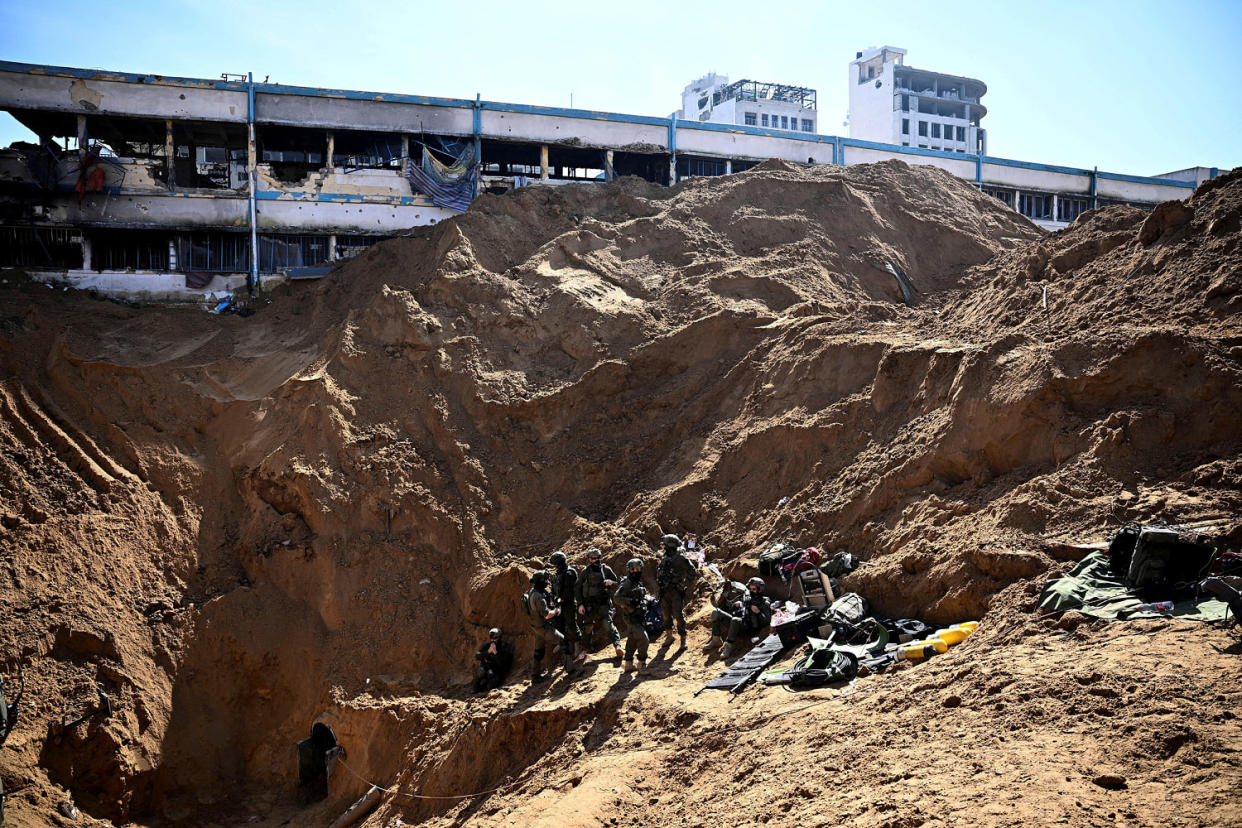Israel seizes trove of intelligence on Hamas in Gaza offensive, with U.S. help
Israel has secured a trove of intelligence on Hamas during its military offensive in Gaza, giving it a detailed picture of the internal workings of the militant organization, according to an administration official, an intelligence official, a congressional source, an Israeli official and a former U.S. official.
The intelligence has been gleaned from hard drives, cellphones, laptops, maps and other material seized during Israel’s invasion of the Gaza Strip, as well as electronic eavesdropping conducted by the U.S., the sources said.
The information obtained by the Israel Defense Forces includes extremely detailed information about Hamas’ leadership, command and control, and communications, an intelligence official said.
“They have more understanding and intelligence on Hamas than they ever had before,” said Matthew Levitt, a former senior official in the Treasury and State departments and now a senior fellow at the Washington Institute for Near East Policy.
“They have the HR [human resources] files and more. So their understanding of what Hamas was able to do is much, much more granular,” said Levitt, who recently traveled to the region.

The intelligence successes most likely enabled Israel to locate and kill Hamas’ No. 3 official, Marwan Issa, in an airstrike last week in Gaza, current and former officials said.
“They have put a lot of pressure on Hamas’ leadership and capabilities, and they absolutely have taken advantage and are exploiting materials for additional intelligence and information,” a senior Biden administration official said.
“They have definitely taken advantage of the material that they’ve been able to collect,” the administration official said.
The intelligence seized in raids of Hamas command centers helped inform Israel’s accusations that 12 staff members of the U.N. agency for Palestinian refugees, known as UNWRA, took part in the Oct. 7 Hamas terrorist attack on Israel, according to current and former officials and an Israel official.
As it tries to track Hamas’ leaders and weapons stockpiles, Israel is also receiving assistance from U.S. intelligence agencies.
“The rest of the top [Hamas] leaders are in hiding, likely deep in the Hamas tunnel network, and justice will come for them, too,” White House national security adviser Jake Sullivan told reporters Monday. “We are helping to ensure that.”
Since the Oct. 7 attacks on Israel, U.S. spy agencies have shifted resources and stepped up intelligence gathering in Gaza to help Israel in its fight against Hamas, including providing signals intelligence — information gleaned from electronic eavesdropping on communications — according to current and former officials.
Before Oct. 7, Hamas had received a lower priority as a U.S. intelligence target, and Israel’s political leaders and intelligence and military services have faced accusations they failed to focus sufficiently on the threat posed by Hamas militants or to anticipate the terrorist attack, the deadliest in Israel’s history.
In the Oct. 7 attack, hundreds of militants swarmed over Israel’s southern border and killed about 1,200 people, mostly civilians, and took more than 200 hostages.
Israel’s military forces are now focused on hunting down Yahya Sinwar, the leader of Hamas in Gaza, and Mohammed Deif, the commander of Hamas’ military wing.
The IDF offensive has also targeted Hamas’ weapons production sites and resupply routes out of Gaza.
Over the past two decades, Hamas had built up a large military infrastructure and developed the capacity to manufacture weapons and ammunition, including sniper rifles and rockets. But the Israeli offensive has shattered that arms production complex, current and former officials said.
The Israeli operation also appears to have severely curtailed Hamas’ capacity to secure weapons shipments into Gaza from Iranian and other sources.
Although Israel says its military campaign is on the path to crippling Hamas, the steep civilian casualty toll in Gaza and the dire humanitarian conditions have sparked international outrage.
The Biden administration has urged Israel to scale back its offensive and to avoid a full-blown assault on the southern Gazan city of Rafah, where 1.5 million people have taken shelter.
